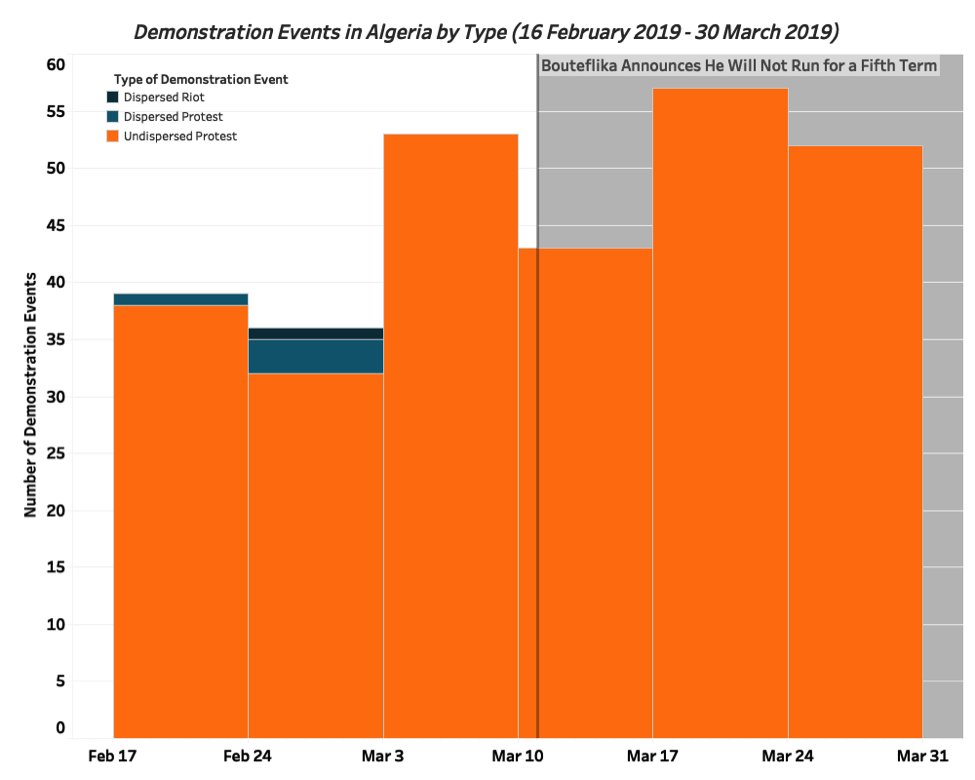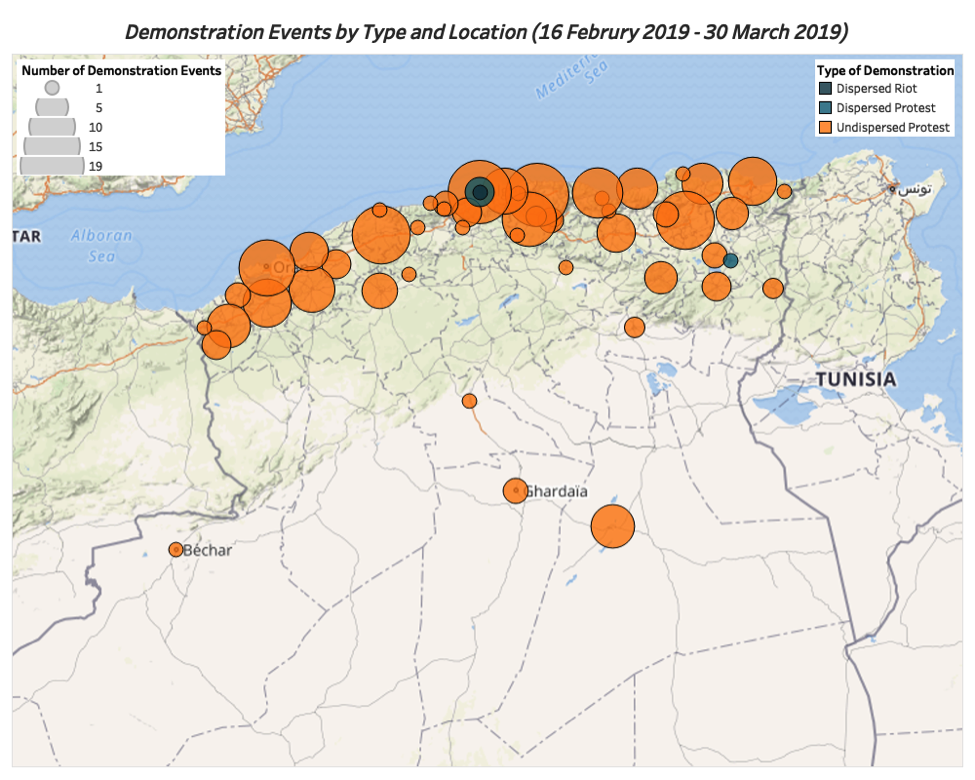The wave of protests in Algeria which emerged in mid–February 2018 in response to Bouteflika’s plan to run for a fifth term, has undermined the Algerian elites’ confidence in the 82-year-old President. On April 2nd, Bouteflika resigned from office after two decades in power (BBC, 2 April 2019). In the days leading up to his resignation, statements from high-ranking politicians and military officials calling for Bouteflika’s replacement highlighted the extent to which ‘Le Pouvoir’ — a nickname for the elite members of the military, business community, and politics that govern Algeria — had lost faith in Bouteflika.
The persistence of anti-government demonstrations, even after the March 11 announcement that he will not run for a fifth term, however, suggest that merely Bouteflika’s departure will not satisfy the public. Though the wave of anti-government demonstrations in Algeria thus far has largely been peaceful and undispersed by the government, it is unclear how ‘Le Pouvoir’ will respond to continued demonstrations after Bouteflika’s departure from office. Though the elites have been willing to concede Bouteflika’s position and have not resorted to violent repression, this may change if they feel their position is threatened.
A Public Rejection…
Since February 16, there have been 283 demonstration events in Algeria. Participants in the demonstrations come from a broad cross-section of Algerian society, including students, labor groups, teachers, and health workers. The vast majority of these events (98%) have been undispersed, peaceful protests. Since the week of March 3, there have been no reports of any demonstrations being dispersed.
The lack of government repression may have contributed to the spread of protests throughout the country. Though urban centers like Algiers, Constantine, and Tizi Ouzou are common sites of repeated demonstrations, since February 16, there have been demonstrations in more than 50 locations. In March 2019, demonstrations spread to 17 new locations throughout Algeria.
… and a Shadowy Response
Though the Algerian government has not frequently publicly cracked down on these demonstrators, it has tried to quell these displays in a number of less direct ways. Netblocks, a civil society group focused on internet freedom, reported internet disruptions in the country in early March, which they suggest was done to prevent anti-government protests (Netblocks, 1 March 2019). In early March, Bouteflika announced plans to serve a shortened third term. By mid-March, amid spreading demonstrations, President Bouteflika made an announcement delaying the elections, reshuffling high-ranking government officials, and asserting that he will not run for a fifth term.
On March 26, the Army Chief of Staff — and previously close ally of Bouteflika — Gen. Ahmed Gaid Salah, called for Bouteflika to vacate the office in accordance with constitutional provisions (The National Interest, 26 March 2019). In response to Gen. Salah’s statement, the country’s constitutional council held a meeting that day (Reuters, 26 March 2019). Salah was quickly joined by Ahmed Ouyahia, the recently removed Prime Minister and current head of the National Rally for Democracy (RND), a party previously allied with Bouteflika (The Guardian, 26 March 2019). These announcements all reflect a political class in flux, seeking to preserve their influence. A retired army general told Reuters “The game is between the presidency and the demonstrators. And the referee is the army. So you can exclude a player, but you cannot exclude the referee” (Reuters, 29 March 2019).
Wait and See
Though the military and political elites may see themselves as the referee, the tenor and persistence of the demonstrators suggest that they are considered a part of the opposing team by those on the streets. Leaders of some of the demonstrators have commented that while Bouteflika’s departure is a welcome change, the demonstrations will continue (BBC, 2 April 2019). If anti-government demonstrations persist past Bouteflika’s departure from office, it is unclear what sort of bargain Le Pouvoir will be willing to broker with demonstrators — or if they will resort to crude repression.
© 2019 Armed Conflict Location & Event Data Project (ACLED). All rights reserved.







